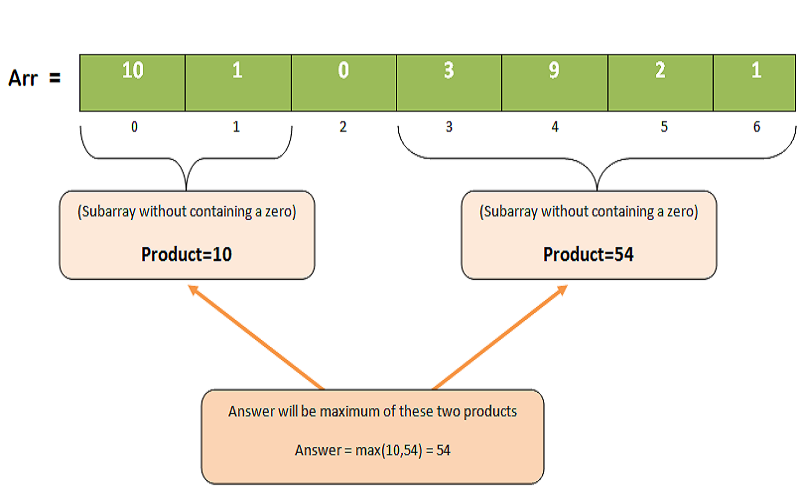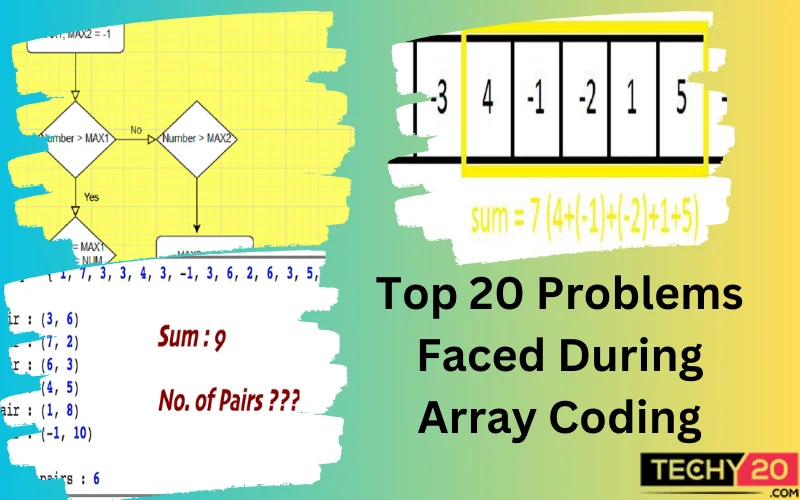An array is a data structure data in which the data is accessed directly by using the index number. It is a collection of data elements that are similar and stored at various locations. These are used to apply vectors and matrices from mathematics and make a set in programming. It helps maintain large data sets to avoid confusion while using many variables. In short, it refers to the solutions that allow the application of operations to the set of values simultaneously. Here we have discussed some of the problems faced during array coding by the coders.
1. Finding A Missing Number In An Integer Array
This is the most common problem faced during array coding. In this, an array integer has numbers 1 to 100 but one of the numbers is missing. One needs to find the missing number and solve the problem without using any Java API or open-source library. A simple method to solve the problem is by calculating the sum of all the numbers and then comparing it with the expected sum, and the missing number will be the difference between them.
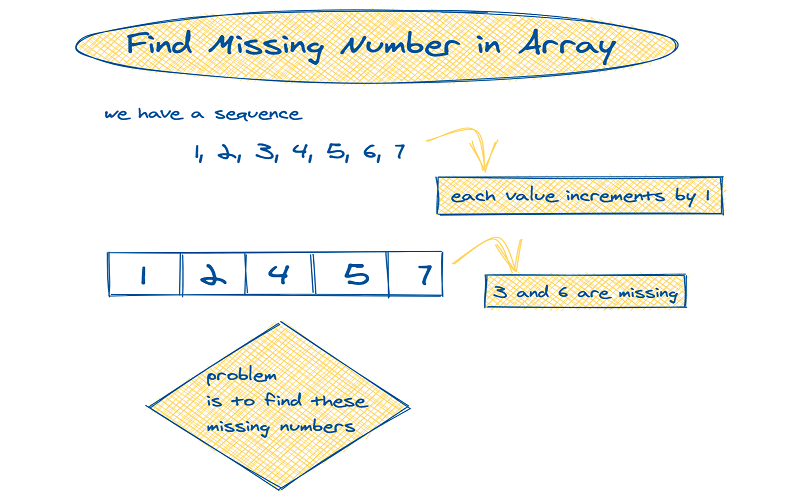
2. Checking If An Array Contains A Number
There is no built-in method present in a collection to check the existence of a number. So, checking the presence of a number in an array is a problem. The problem can be solved using either of the two options, binary search or sequential search. If the array is sorted, then binary search is used to check the given number, and if the array is not sorted, then the sequential search is used.
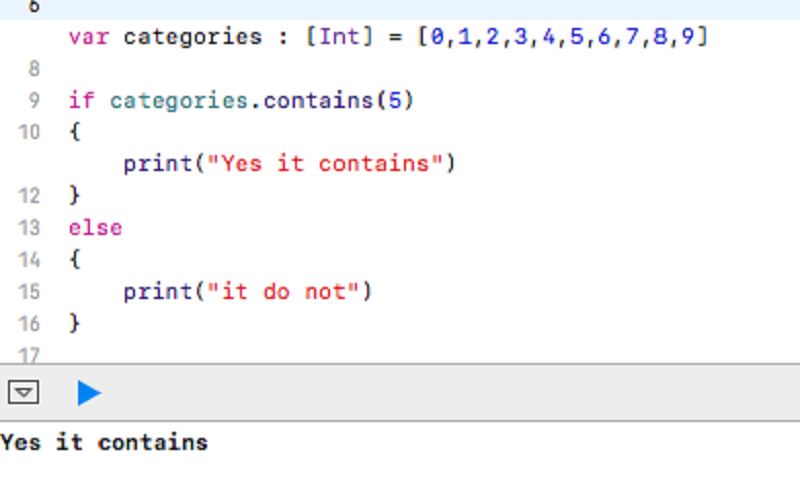
3. Finding The Pairs On The Integer Array Whose Sum Is The Same As The Given Number
In this, an integer array and a number are given, and you have to search for all the elements present in the array whose total sum is equal to the number that is provided. If the number is positive or negative, the answer should also be positive to negative only. Always write the unit test even if not asked.
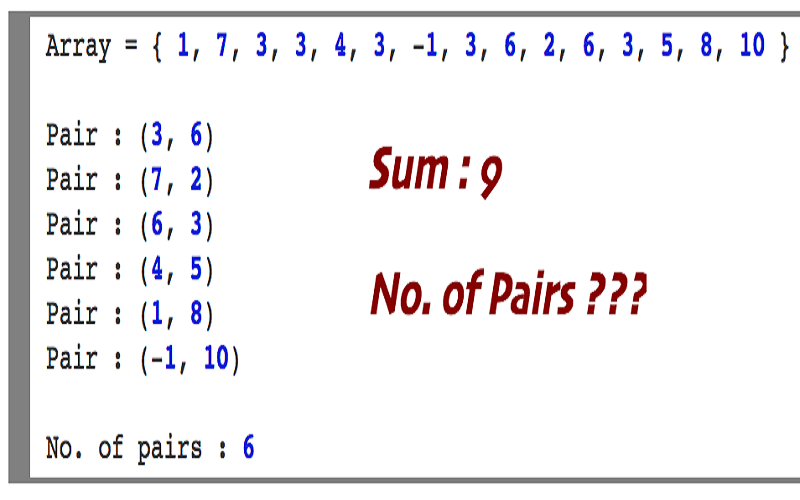
4. Removing Duplicates From Arrays In Java
In this, an array is given, and it has duplicates. Duplicates could be one or more. For example, if the given array is {3, 2, 1, 3, 4, 2, 1}, then the solution should be {1, 2, 3, 4, 5}.
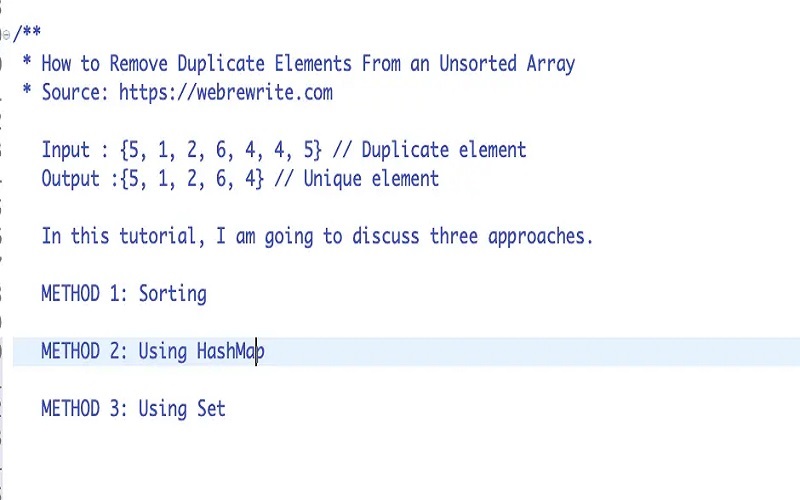
5. Finding The Intersection Of Two Sorted Arrays
In this type of problem, you are required to treat the given array as a set. You are supposed to write the function in one of the programming languages such, as Python, Java, C, or C++, to find the intersection of two sorted arrays. For instance, if the input is {31, 44, 51, 32, 45} and {71, 44, 55, 31, 21}, then the solution should be {44, 31}.
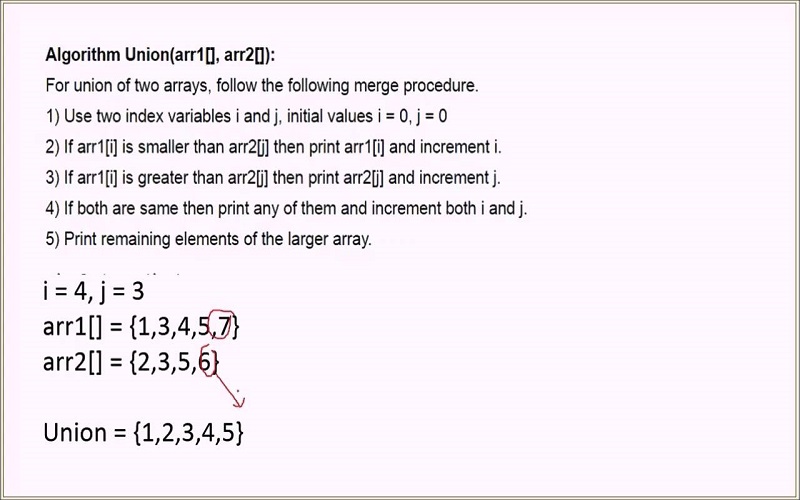
6. Finding A Kth Smallest Element In An Unsorted Array
In this type of a problem, numbers in an unsorted array and k is given, you have to find the kth smallest element in the given array. The solution to this type of problem can be that firstly the array should be sorted in ascending order, and then the k-1th element should be selected, which will be the smallest element in the given array.
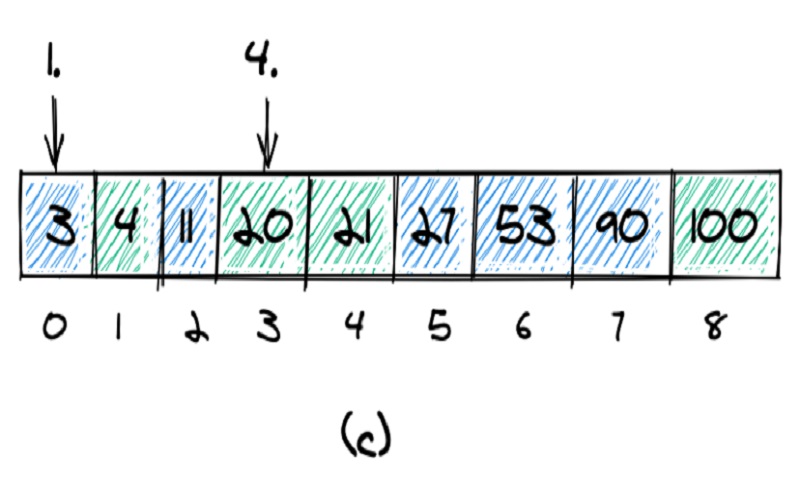
7. Finding A Kth Largest Element In An Unsorted Array
This problem is similar to the problem, discussed above but in the previous problem you were supposed to find the kth smallest element, and here you have to find the kth largest element in an unsorted array. To solve the problem, the array should be sorted in descending order, and then the k-1th element should be picked, which will be the solution to the problem.
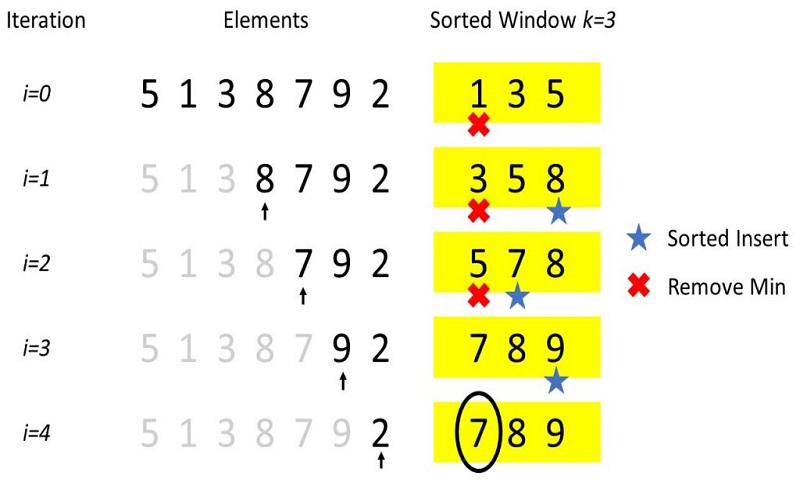
8. Rearranging An Array Of Alternative Positive And Negative Numbers
In this, an array containing positive and negative numbers is given, which has to be arranged so that a positive number is followed by a negative number, and so on. There is no issue even if the positive and negative numbers are unequal. If there are extra positive numbers, they will come at the end of the array in the solution.
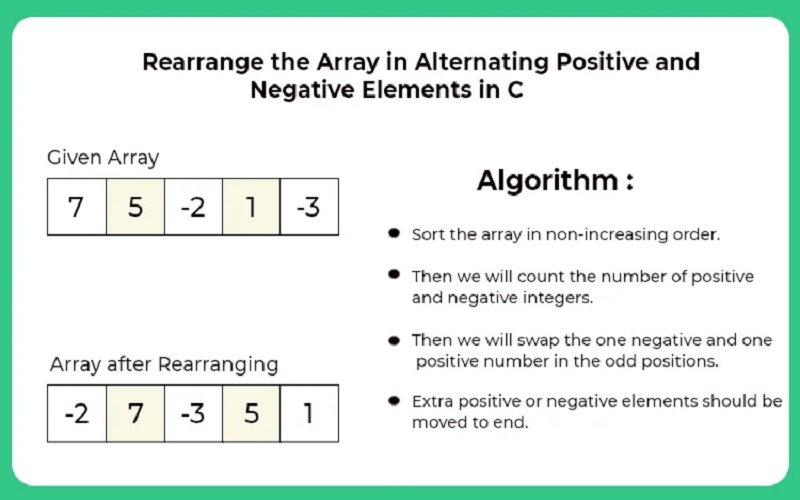
9. Reversing Array In Place In Java
Here an array is given, and the obtained solution should be precisely the reverse of the given array. In this problem, you are not allowed to use the Java API or other open-source library to solve the problem, and you are required to create and apply your logic to get the solution.
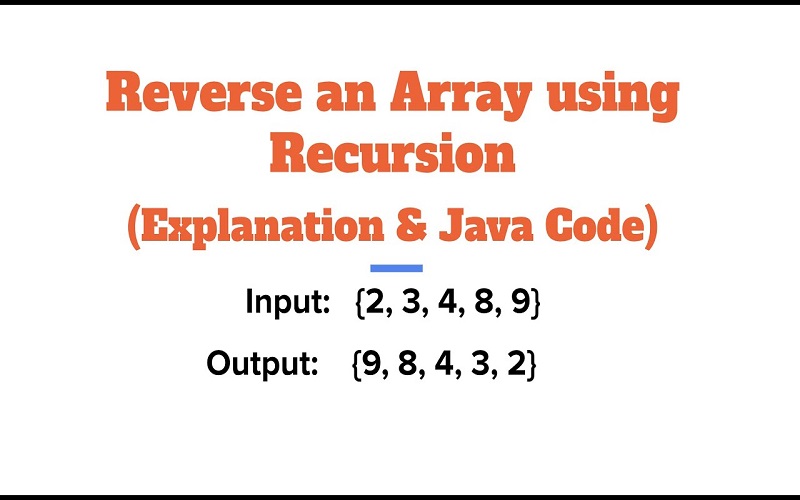
10. Finding The Difference Between An Array And A Linked List Data Structure
This is kind of a theoretical problem. There are many differences between an array and a linked list. For example – the linked list stores the elements at various random locations whereas an array stores the elements in contiguous memory locations. In the linked list, you will have to find an element by traversing, on the other hand, an array that provides an index.
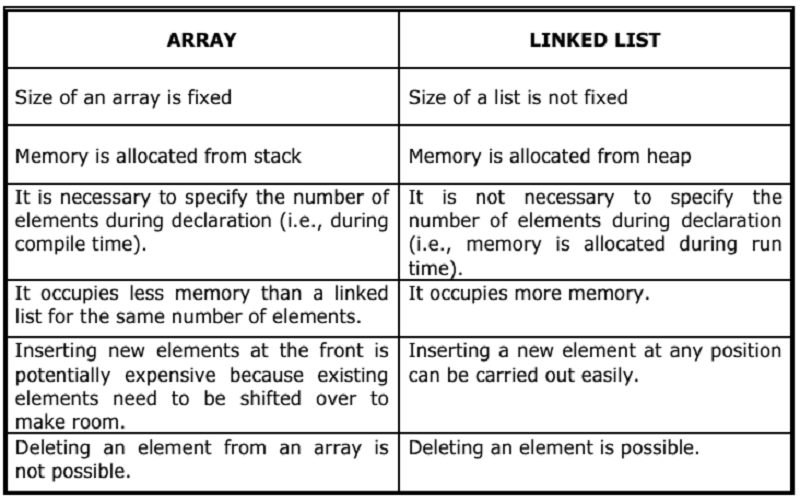
11. Finding Duplicate Numbers In An Array
An array contains numbers from 0 to n-2. Only one number is repeated in a given array, and you have to find that repeating number. The trick that can be applied to solve the problem is comparing the total sum of the given array to the expected sum of all the integers to get the repeated number.
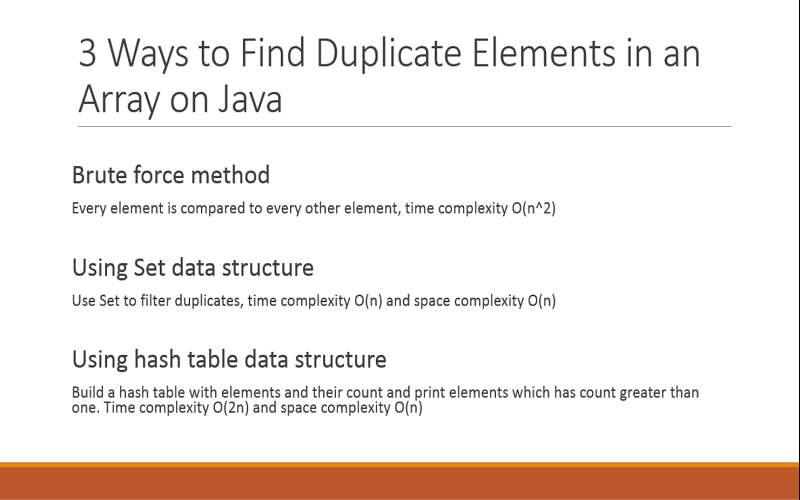
12. Finding The Largest And The Smallest Number In A Given Unsorted Array
This is the most frequent problem that occurs during array coding. An unsorted array of integers is offered, and you have to find the largest and the smallest element in the given array. Initially, sort the given array and then select the top and the bottom element which, will be the solution.
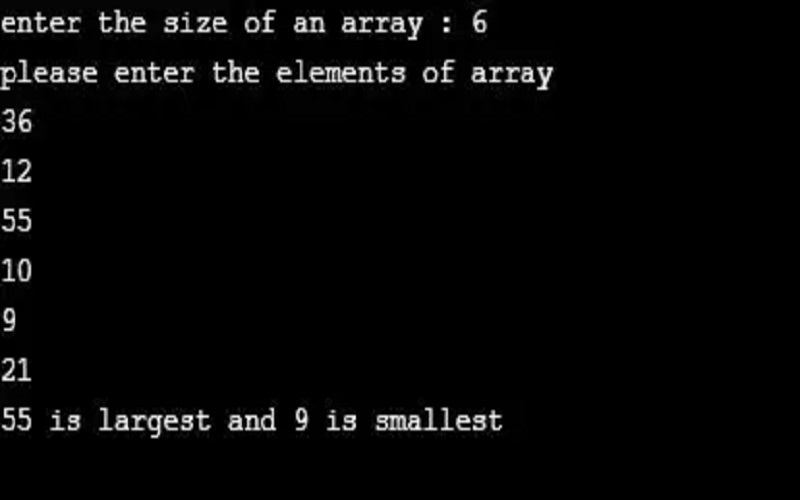
13. Sorting An Array Using The Quicksort Algorithm
The sorting usually happens on the data structure of the given array. For this, you have to write a program in Java to implement the quick sort algorithm. It is up to you whether you use the iterative fast sort or recursive quick sort.
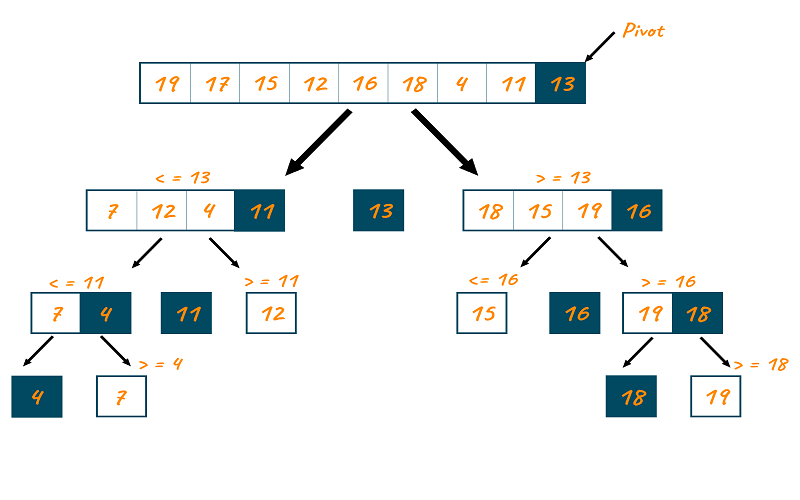
14. Finding The First Repeating Element In An Array Of Integers
This problem is also among the frequently contoured ones. You will be given an array of integers, and you need to find the first repeating number in it. To get the solution, you have to find the element that comes more than one time and whose index is smallest.
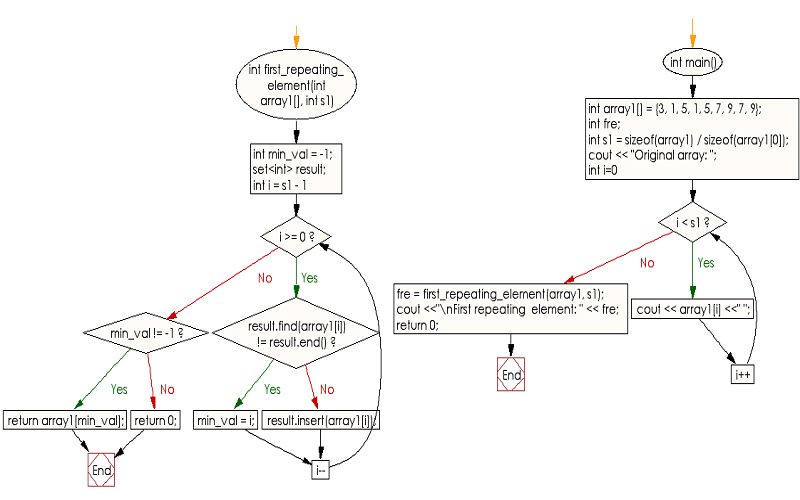
15. Finding The First Non-repeating Element In An Array Of Integers
This problem is exactly the opposite of the problem discussed before this. You were supposed to find the first repeating element, and here are required to find the first non-repeating element in the given integers array. To find the non-repeating element, you have to search for the number that has occurred only once and whose index is smallest.
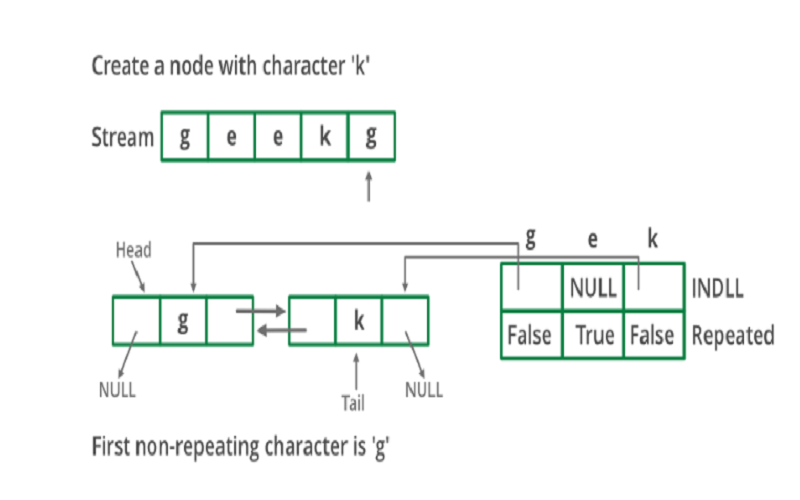
16. Finding The Top Two Numbers From An Integer Array
The solution to this problem is so interesting. You will be given an array of integers, which you have to arrange in descending order first and then pick up the top two numbers, which will be the solution.
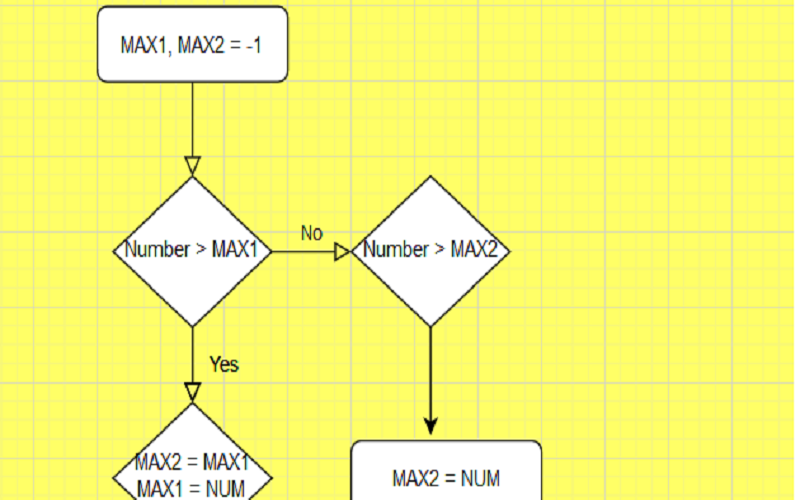
17. Finding The Smallest Positive Integer That Is Not Equal To The Sum Of The Given Array
This is considered one of the most challenging problems while coding an array. Initially, arrange the given sorted array in ascending order and then find the smallest integer of positive value that cannot be represented as a total sum of any subset of the given array.
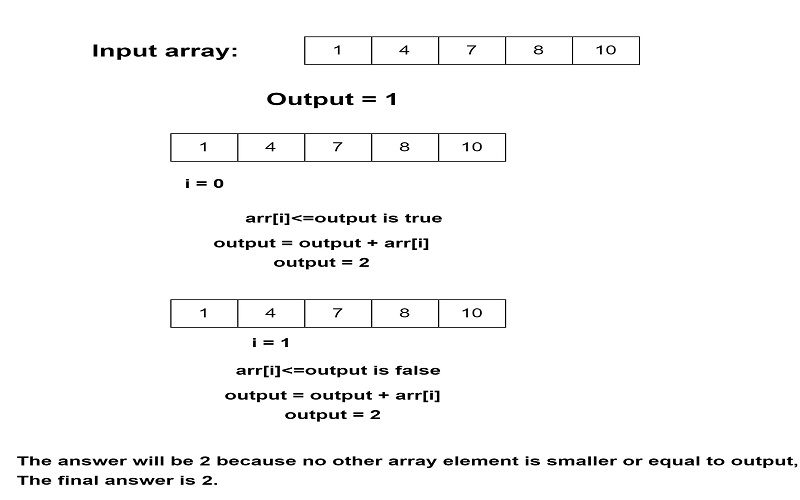
18. Finding If There Is A Sub-array With A Total Sum That Is Equal To Zero
In this type of problem, you will be given an array of negative and positive elements (numbers), and you need to find if a sub-array is present in it with the total sum equal to zero.
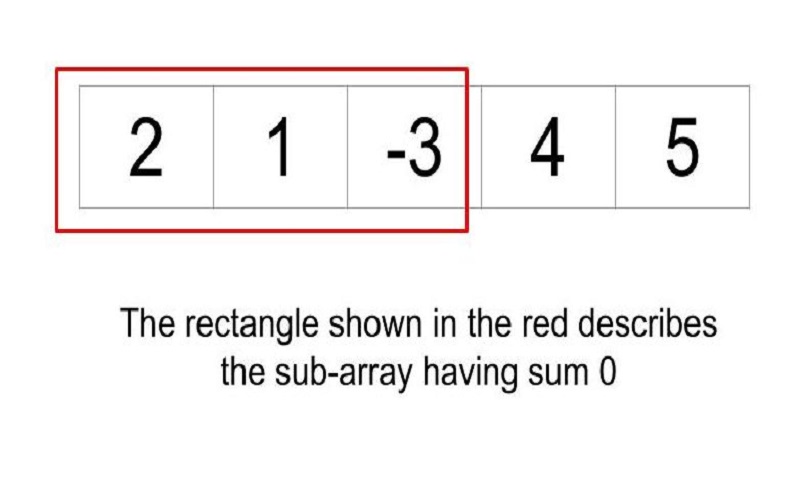
19. Finding Sub-array With The Maximum Sum In A Given Array Of Positive And Negative Numbers
To get the solution to this problem, you need to find a contiguous sub-array in the given array that contains at least one number, and that has the largest sum.
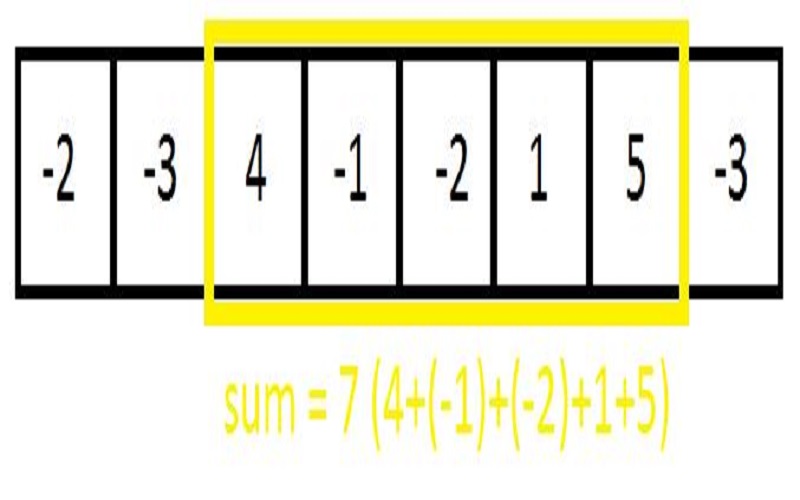
20. Finding A Sub-array With The Largest Product In An Array Of Both The Positive As Well As The Negative Numbers
To get the solution to this type of problem initially, you have to write a program in C++ or Java and then find a contiguous sub-array in the given array that contains at least one number and has the largest product.
